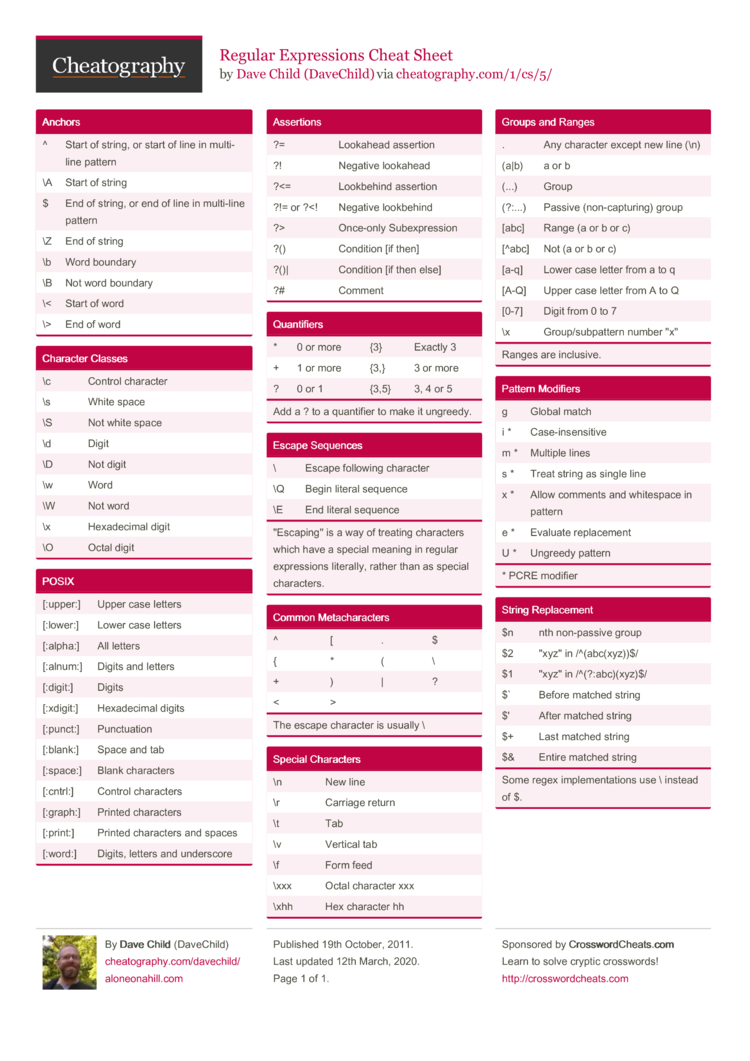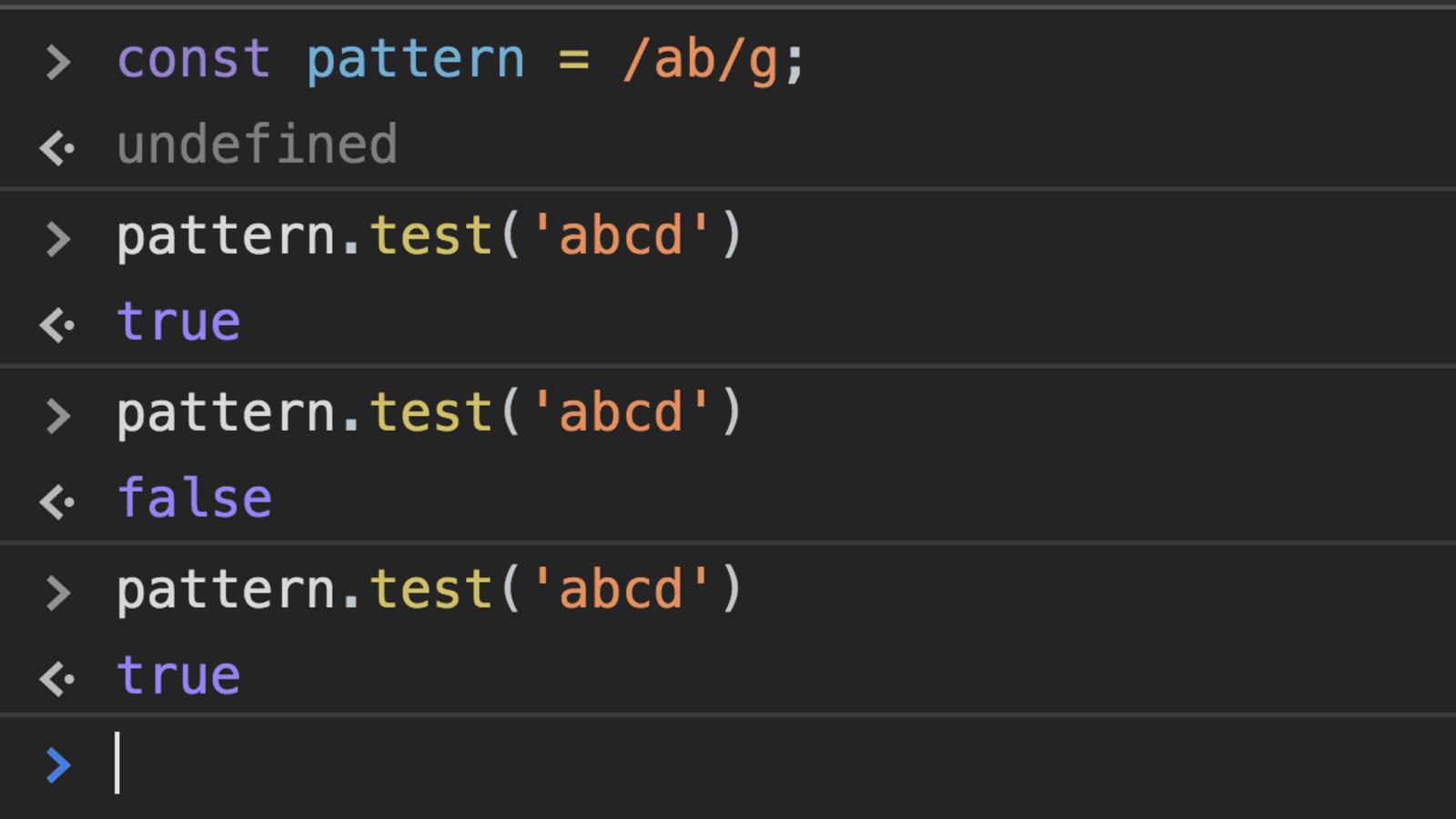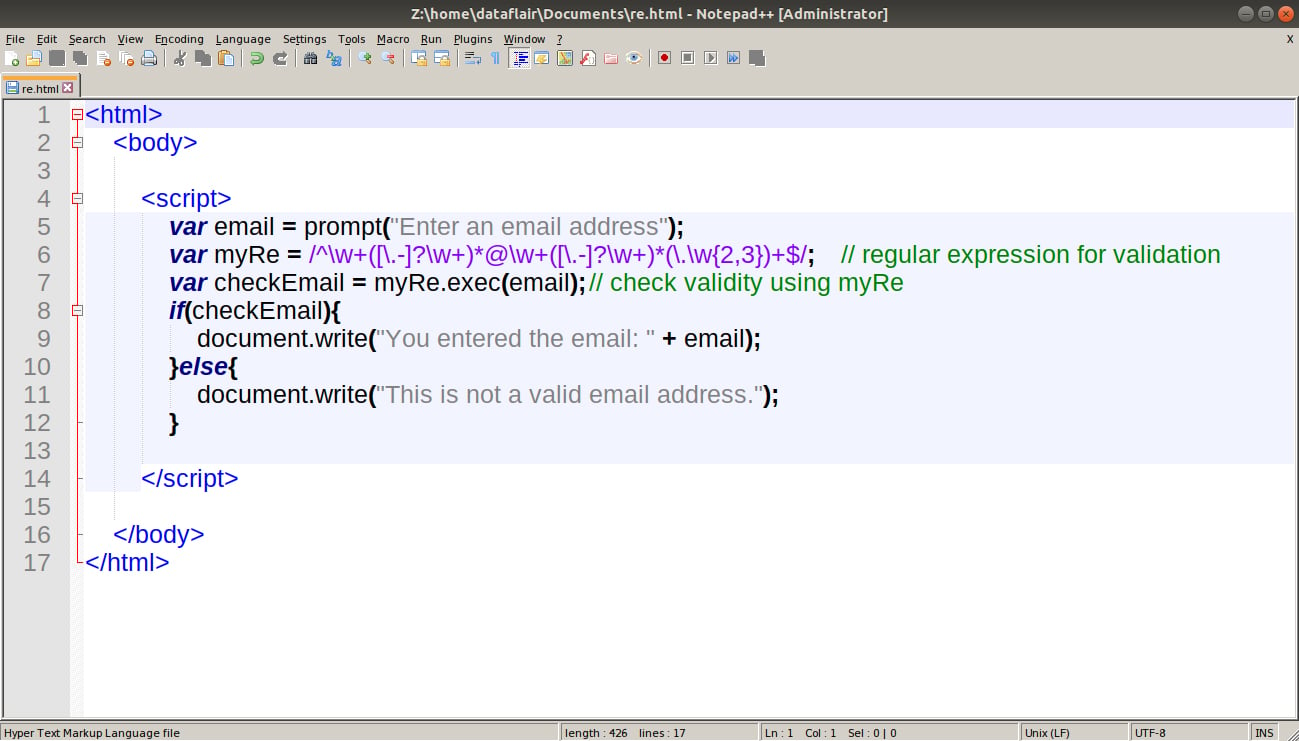
The "test()" function is a member of the RegExp Object and we use it like this: var myRegExp = /dog/ One of the most common uses of regular expressions in JavaScript is testing a string for the existence of a pattern with the "test()" function. It is a vital tool for script development and debugging in Acrobat. If you haven't used the JavaScript Console before, then you need to read the linked article. Also, the examples are intended to be run in the Acrobat JavaScript Console. I find the literal notation much easier and intuitive to work with than the object notation, so all the examples in this article will use the literal notation. Var myRegExp = new RegExp("dog") // Object Notation

#Javascript regular expression not multiple things code#
The two lines of code below create exactly the same object: There are two ways to create a new regular expression variable- with the literal notation and with the object notation. In JavaScript, a regular expression is represented with the "RegExp" object. They are a feature of Core JavaScript, which means the examples shown here will work in all JavaScript environments. Regular expressions don't have anything to do specifically with Acrobat. To understand how this is done, we first we need to see how regular expressions are used in JavaScript. The great power of regular expressions is that they are flexible, i.e., they have the ability to match a wide range of strings, from specific words to general patterns. In the following text, we'll discuss the details of this and many other simple variations that can be made to tailor the base expression to match nearly any criteria that is necessary. The original Regular Expression can be easily modified to be case insensitive and to match all occurrences through the addition of some special characters. For example, the following sentence includes two occurrences of "dog." The regular expression above will find only the first one. It will not match "Dog" or "DOG" or "doog." Also, it will only match the first occurrence of "dog" in the text to which it is applied. It matches them in the order and case in which they are written. It is case sensitive and it matches the specified characters verbatim, nothing more and nothing less.

This regular expression matches the word "dog." The expression does not contain any special characters (only standard-text characters). These forward slashes are the syntax that indicates (delimits) a Regular Expression. It is a mixture of both regular text characters and characters with special meaning, enclosed in forward slashes, "/". What is a Regular Expression?Ī regular expression is simply a string of characters that represent a text pattern. This article will ease you into the rich and powerful world of regular expressions for Acrobat JavaScript through some surprisingly simple examples, and will also point you to resources for further study. With just a little knowledge it is easy to create some very useful pattern matching expressions.

However, they don't have to be difficult. There are several books and websites devoted to it. Regular expressions are a large and complex topic. In fact, in Core JavaScript, regular expressions are a built-in data type and are employed in several of the standard string operations.

And, of course, this includes Acrobat JavaScript. They have been tested by the ages and been found to be so useful that practically every computer language in use today provides support for using regular expressions. Regular expressions are an ancient and powerful technique for finding patterns in text. Scope: All Acrobat versions Skill Level: Intermediate Prerequisites: Familiarity with the Acrobat JavaScript Console Text matching with regular expressions using JavaScript


 0 kommentar(er)
0 kommentar(er)
